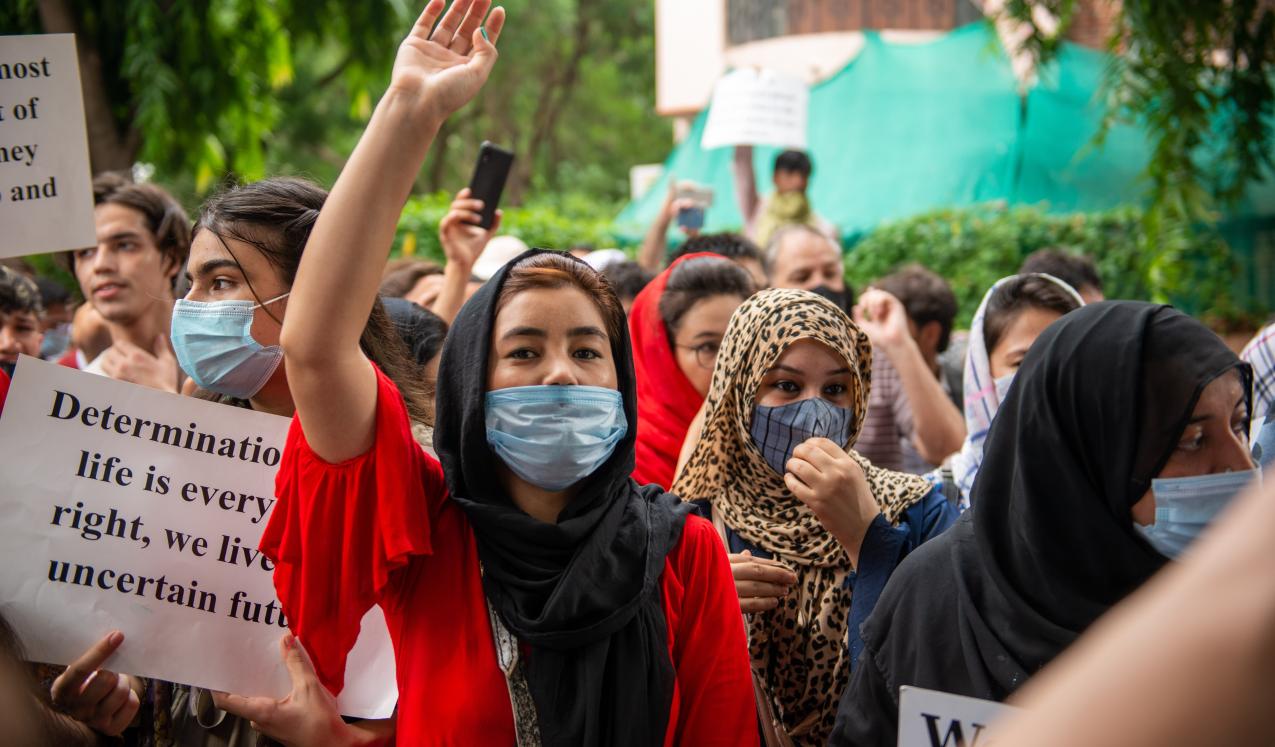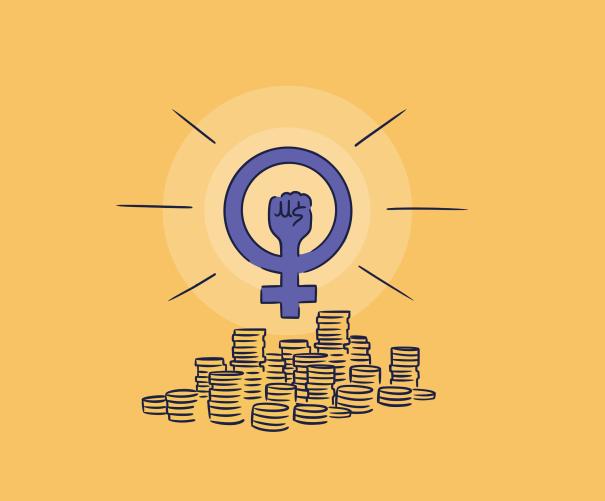
This call for proposals is now closed.
Call for proposals: primary research partners
Gender-based violence (GBV) remains a pervasive global issue, deeply rooted in patriarchal structures, power imbalances, and oppressive gender norms. Both feminist and LGBTQI+ movements have been at the forefront of challenging these norms and advocating for gender justice. While these movements have historically operated in separate spheres, the contemporary moment is marked by activist commitments to intersectionality and inclusion. Thus, the interaction between feminist and LGBTQI+ activism presents a unique opportunity to address the drivers of GBV more comprehensively.
To address a gap in our understanding of how movements work collaboratively and elevate lessons learned to address the drivers of GBV more comprehensively, ALIGN/ODI Global is launching a new research project ‘How do feminist movements and LGBTQI+ movements interact to change norms that underpin GBV?’
Background
Both feminist and LGBTQI+ movements share a commitment to transforming existing gender norms and power structures and have a history of organising for gender justice. In some places, they have been able to collaborate well together. For example, the Namibian LGBTQI+ movement supported the feminist pro-choice movement, and support was reciprocated when LGBTQI+ rights activists were advocating for the inclusion of SOGIE in Comprehensive Sexuality Education. The Ni Una Menos movement grew from a trans-inclusive focus on the machista norms that underpin femicide and GBV, denouncing heteronormativity, to fight a broad range of social justice issues. And younger feminists are more likely than older feminist movements to take an inclusive approach and engage with other movements, such as for LGBTQI+ rights, racial justice, and indigenous rights.
Despite shared goals, feminist and LGBTQI+ movements sometimes find it hard to work together. Mainstream movements are often seen to exclude marginalised voices. For example, LBTQ women’s movements often experience exclusion from mainstream women’s movements, and sometimes from LGBTQI+ rights movements that are driven by gay men. Current politicisation and weaponisation of LGBTQI+ rights by anti-gender actors make it risky for feminists and women’s rights activists to express support for LGBTQI+ rights.
GBV can be used as a means to police and punish people, including both LGBTQI+ people and heterosexual, cisgender women, who violate gender norms and force them to comply with patriarchal norms. Violence against LGBTQI+ people is often siloed from mainstream feminist GBV discourses, policies, and services, and categorised as a type of LGBTQI+ rights violation. For example, forced marriage of LBQ+ women, a type of GBV, is an issue that affects many queer women and girls but is not usually considered by actors working on child, early, and forced marriage. In this complex landscape of perceived political risk and marginalisation, anti-gender actors are known to exploit divisions within movements to their advantage.
In 2024, there are calls for increased solidarity in the face of the rollback of gender equality (from research: IDS; UN Women, and conferences: ILGA, AWID Forum, GATE). Responding to these calls, our research proposal aims to investigate the conditions for feminist movements and LGBTQI+ rights movements to work together to shift harmful gender norms that are linked with high rates of gender-based violence. In the context of anti-gender backlash, it is imperative to identify and platform lessons from successful advocacy to enable future collaborations.
This research complements ALIGN’s previous work which identified some pathways to norm change used by social movements, and examined how feminist organisations have impacted gender norms underpinning GBV in Colombia, Mexico and West Africa. This call will deepen these findings to explore how feminist and LGBTQI+ movements understand the relationship of gender and social norms to GBV, and how this is linked with movement collaboration.
Research objectives, impact and methods
The research will examine how feminist and LGBTQI+ movements interact and collaborate in addressing norms around GBV, and to explore each movement’s understanding of the gender norms underpinning GBV.
The proposals should explore issues related to these questions:
- What has driven collaboration? On which issues?
- Where has there been tension? On which issues, and why?
- How do movements understand the relationship of social and gender norms to GBV?
- How do different understandings of GBV (e.g. types of GBV, against certain groups), and response strategies drive collaboration or tension?
Approach
This call for proposals seeks research partner(s) to conduct empirical research which will examine the interaction between feminist and LGBTQI+ groups based on a minimum of two examples of collaboration, or the lack thereof. Proposed research may take place in one country or compare the interaction in two countries. The budget for this call is £45- £55,000.
Applications will be limited to organisations based in South Asia. The partner(s) will work with ALIGN to finalise the research methodology and design.
Norms component
The research should focus on examples of collaboration on GBV advocacy goals, and include analysis of how movements understand, address, and shift the norms that underpin GBV. The analysis might consider some of the following:
- The local social and gender norms that underpin GBV.
- How feminist and LGBTQI+ movements have addressed these norms either separately or together.
- Norm change on GBV: as influenced by collaboration between feminist and LGBTQI+ social movements or influenced by other factors.
- Changing social norms that have limited collaboration, e.g. divisiveness between identity groups, increasing hostility towards certain groups making activism harder, limitations on women’s freedom of movement.
- Differences and similarities in how movements understand gender norms of GBV, the drivers of GBV.
This research is intended to contribute to the growing body of literature on intersectional approaches to addressing GBV. It aims to provide valuable insights into how diverse perspectives can be leveraged to create more comprehensive and inclusive strategies for challenging the norms that underpin GBV and inform how policymakers and movements can facilitate collaboration for greater success.
Timelines, budget, ways of working and outputs
Timeline: March 2025 – April 2026
The project’s expected start date is early March 2025, as soon as research partner(s) are selected and contracted, and will last approximately 12 months, excluding project dissemination. The expected range for a research budget is £48-55,000 GBP.
A research partnership will involve extensive collaboration between ALIGN/ODI Global and the selected partner, which may involve refining the proposal and methodology and providing input as needed on data analysis.
The expected outputs to be developed during the project are:
- A research workplan in collaboration with the ALIGN/ ODI Global team.
- Ethical review clearance if required domestically and at ODI Global.
- Primary data collection and analysis.
- Research report: this will include the first draft and a revised version addressing peer review feedback. This report will be in the ALIGN format (we will provide publication and editing support).
- A presentation of findings delivered at an international ALIGN knowledge sharing event, webinar or virtual conference.
- Dissemination event in country or region.
Who can apply?
We welcome applications from research organisations with a proven track record in GBV issues, feminist movements and/or LGBTQI+ movements and issues. Knowledge and experience in researching gender norms or assessing gender norm change is a distinct advantage.
Applicant organisations must be legally registered. Individual researchers/consultants can only be considered if they are included as part of an organisation's proposal. All organisations must also have indemnity insurance or a locally relevant equivalent that provides cover for professional services.
This call for proposals is now closed.

ALIGN micro-grant funds
Find out more about ALIGN's micro-granting including open-calls and completed research.